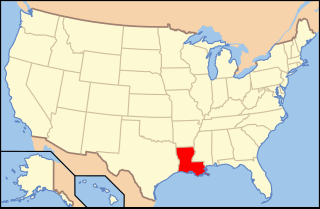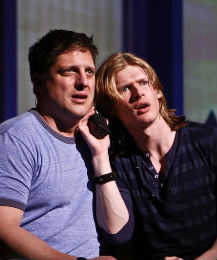Baby M was the pseudonym used in the case In re Baby M, 537 A.2d 1227, 109 N.J. 396 for the infant whose legal parentage was in question.
Same-sex adoption is the adoption of children or adults by same-sex couples. It may take the form of a joint adoption by the couple, or of the adoption by one partner of the other's biological child or adult.

Surrogacy is an arrangement, often supported by a legal agreement, whereby a woman agrees to childbirth on behalf of another person(s) who will become the child's parent(s) after birth. People pursue surrogacy for a variety of reasons such as infertility, dangers or undesirable factors of pregnancy, or when pregnancy is a medical impossibility.

Lesbian, gay, bisexual, and transgender (LGBT) rights in Israel are considered the most developed in the Middle East and among the most developed in Asia. Although same-sex sexual activity was legalized in 1988, the former law against sodomy had not been enforced since a court decision in 1963. Israel became the first country in Asia to recognize unregistered cohabitation between same-sex couples, making it the first country in Asia to recognize same-sex unions in any capacity. Although same-sex marriages are not performed in the country, since Israel does not have civil non-religious marriages, and none of the recognized religious marriage institutions within the country perform same-sex marriages, Israeli law recognizes civil marriages performed elsewhere with the same legal rights as marriages performed in Israel. Discrimination on the grounds of sexual orientation was prohibited in 1992. Same-sex couples are allowed to jointly adopt, following a landmark court decision in 2008. Previously, stepchild adoption, as well as limited co-guardianship rights for non-biological parents, were permitted. LGBTQ people are also allowed to serve openly in the military.

The rights of lesbian, gay, bisexual, transgender, and queer (LGBTQ) people in the U.S. state of Utah have significantly evolved in the 21st century. Protective laws have become increasingly enacted since 2014, despite the state's reputation as socially conservative and highly religious. Utah's anti-sodomy law was invalidated in 2003 by Lawrence v. Texas, and fully repealed by the state legislature in 2019. Same-sex marriage has been legal since the state's ban was ruled unconstitutional by federal courts in 2014. In addition, statewide anti-discrimination laws now cover sexual orientation and gender identity in employment and housing, and the use of conversion therapy on minors is prohibited. In spite of this, there are still a few differences between the treatment of LGBTQ people and the rest of the population, and the rights of transgender youth are restricted.
The main family law of Japan is Part IV of Civil Code. The Family Register Act contains provisions relating to the family register and notifications to the public office.

Same-sex parenting is the parenting of children by same-sex couples generally consisting of gay, lesbian, or bisexual people who are often in civil partnerships, domestic partnerships, civil unions, or same-sex marriages.

Dustin Lance Black is an American screenwriter, director, producer, and LGBT rights activist. He is known for writing the film Milk, for which he won the Oscar for best original screenplay in 2009. He has also subsequently written the screenplays for the film J. Edgar and the 2022 crime miniseries Under the Banner of Heaven.
Fertility tourism is the practice of traveling to another country or jurisdiction for fertility treatment, and may be regarded as a form of medical tourism. A person who can become pregnant is considered to have fertility issues if they are unable to have a clinical pregnancy after 12 months of unprotected intercourse. Infertility, or the inability to get pregnant, affects about 8-12% of couples looking to conceive or 186 million people globally. In some places, rates of infertility surpass the global average and can go up to 30% depending on the country. Areas with lack of resources, such as assisted reproductive technologies (ARTs), tend to correlate with the highest rates of infertility.

Lesbian, gay, bisexual, transgender, and queer (LGBTQ) people in the U.S. state of Wyoming may face some legal challenges not experienced by non-LGBTQ residents. Same-sex sexual activity has been legal in Wyoming since 1977, and same-sex marriage was legalized in the state in October 2014. Wyoming statutes do not address discrimination on the basis of sexual orientation and gender identity; however, the U.S. Supreme Court's ruling in Bostock v. Clayton County established that employment discrimination against LGBTQ people is illegal under federal law. In addition, the cities of Jackson, Casper, and Laramie have enacted ordinances outlawing discrimination in housing and public accommodations that cover sexual orientation and gender identity.

Lesbian, gay, bisexual, transgender, and queer (LGBTQ) people in the U.S. state of Louisiana may face some legal challenges not experienced by non-LGBTQ residents. Same-sex sexual activity is legal in Louisiana as a result of the U.S. Supreme Court decision in Lawrence v. Texas. Same-sex marriage has been recognized in the state since June 2015 as a result of the Supreme Court's decision in Obergefell v. Hodges. New Orleans, the state's largest city, is regarded as a hotspot for the LGBTQ community.
Surrogacy in India and Indian surrogates became increasingly popular amongst intended parents in industrialised nations because of the relatively low costs and easy access offered by Indian surrogacy agencies. Clinics charged patients between $10,000 and $28,000 for the complete package, including fertilization, the surrogate's fee, and delivery of the baby at a hospital. Including the costs of flight tickets, medical procedures and hotels, this represented roughly a third of the price of the procedure in the UK and a fifth of that in the US. Surrogate mothers received medical, nutritional and overall health care through surrogacy agreements.

The Kid is a musical with a book by Michael Zam, music composed by Andy Monroe and lyrics by Jack Lechner. The comic story concerns an open adoption process by a same-sex couple. It is based on the 1999 non-fiction book by Dan Savage, The Kid: What Happened After My Boyfriend and I Decided to Go Get Pregnant. The protagonist, Dan, is a sex advice columnist who decides to adopt a child with his partner Terry. Throughout the musical the couple encounter difficulties including making the decision to adopt, finding a birth mother, and overcoming apprehension about the adoption process.

The legal aspects of surrogacy in any particular jurisdiction tend to hinge on a few central questions:
Law in Australia with regard to children is often based on what is considered to be in the best interest of the child. The traditional and often used assumption is that children need both a mother and a father, which plays an important role in divorce and custodial proceedings, and has carried over into adoption and fertility procedures. As of April 2018 all Australian states and territories allow adoption by same-sex couples.
Until 2017, laws related to LGBTQ+ couples adopting children varied by state. Some states granted full adoption rights to same-sex couples, while others banned same-sex adoption or only allowed one partner in a same-sex relationship to adopt the biological child of the other.
The Vessel is a British comedy web series created and written by Chloe Seddon, Phillip Whiteman and Giovanni Bienne. The series is broadcast on the Internet and premiered on 21 October 2012. Currently 10 episodes have been made and the show can be found distributed across the web on platforms including Blip and YouTube. The Vessel Series follows Kim and her two best friends, Rory and Mike, as they start a family. Rory and Mike are a gay couple who have decided they want to have a baby. Rory and Mike want a baby, so they ask their close friend Kim to be the surrogate mother.

Elizabeth Frances Schwartz is an American attorney, author, and advocate for the legal rights of the lesbian, gay, bisexual, and transgender (LGBT) community.
Circle Surrogacy is a US-based surrogacy agency headquartered in Boston, Massachusetts. Circle Surrogacy carries an audited success rate for intended parents having a baby at 99.3%.

Lesbian, gay, bisexual, and transgender people people wishing to have children may use assisted reproductive technology. In recent decades, developmental biologists have been researching and developing techniques to facilitate same-sex reproduction.











